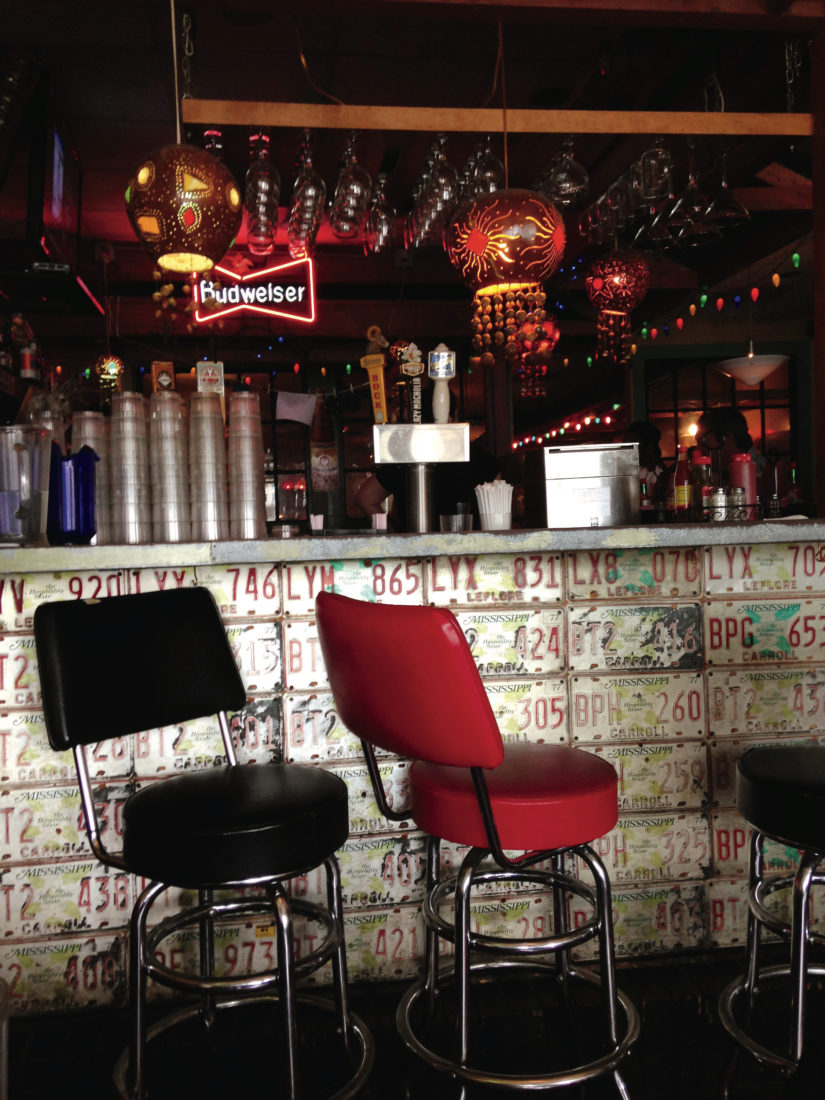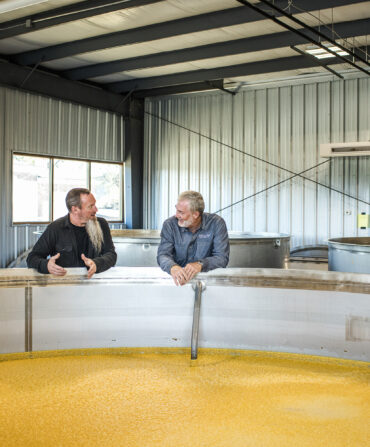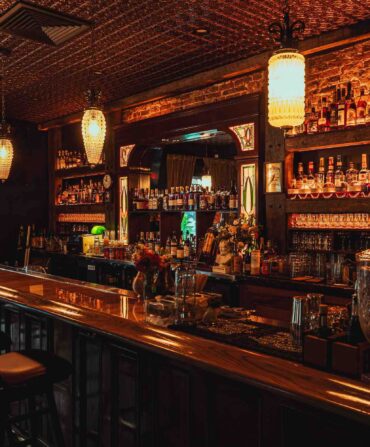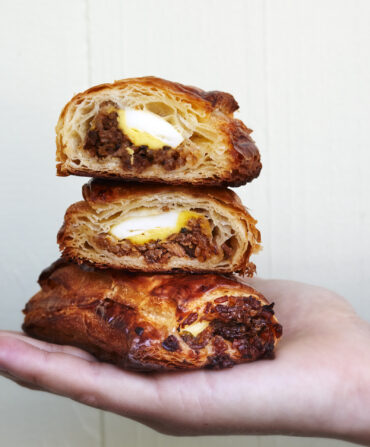I was at this soul-food joint sitting at a bar chain-mailed with Mississippi license plates when I began to suspect I kinda-maybe liked Oxford. Folk art mingled above the red vinyl booths with old photographs of Cajuns shucking oysters. A thousand tasseled toothpicks had been blow-darted into the dingy ceiling tiles. Occasionally one fell into the hair of a passing waitress. The floor was a red-and-black chessboard. There was a stuffed squirrel behind the bar.
I was thirty-nine then, a kid, and had just published a novel about a druggy teenager raised by a Pasquale’s Pizza franchise in South Mississippi and was living in New York on the Lower East Side with a fancy Upper East Side girlfriend. The reviews of my novel kept pouring in—I could recite them at length. It was my first time back home to Mississippi in a decade. The guy beside me at the bar was a field hippie known as Ronzo. After reciting my book reviews, I told him how I’d expected to find wall-to-wall gingham in Oxford, how in Hattiesburg we’d hated on Ole Miss kids worse than the villains of Gulf Coast Wrestling. Then I looked around Ajax Diner and whispered, “Don’t tell nobody, but I kinda like it here.”
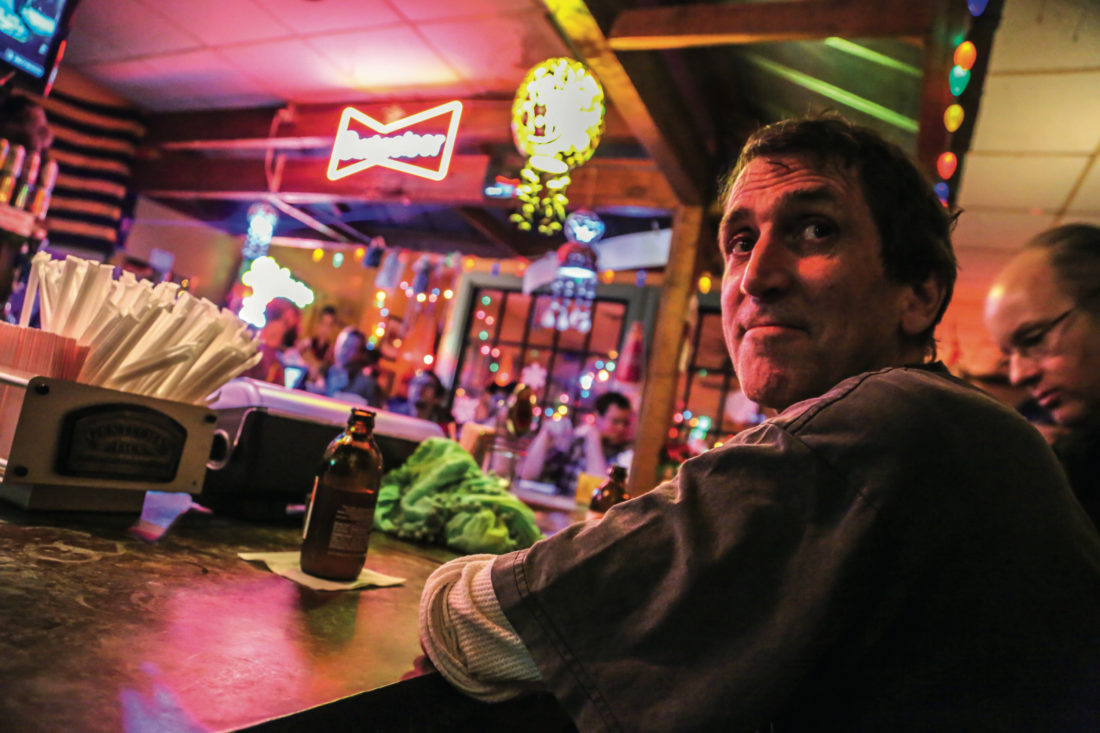
My literary career had flopped spectacularly by the time I returned to Oxford a decade later. I’d fled a brutal Vermont winter to rent a room on Martin Luther King Jr. Drive near the Square. My neighbor was Brandon, the kitchen manager at Ajax. He had been a track star at Ole Miss and liked to have four tequila shots lined up on the bar at the end of his shift. B had been raised in his dad’s Jamaican restaurant in New Orleans and was a force of nature in any kitchen. Tall, wiry, tireless, forever loyal to Lil Wayne, B ruled the bar. Occasionally I’d get drunk enough to challenge him to a footrace in the parking lot in hopes that the tequila might trip him up, but, no, it was like racing a plane till takeoff.
Mexican gourd lamps lined the bar now. A jackalope had replaced the tattered squirrel. Most nights I drank beside Big Ray Brown, the most soft-spoken of giants, after he finished his shift and ordered a staff beer. When rowdy frat boys needed discouraging, one glance from Ray B would send them muttering into the night. Ray worked the kitchen’s sandwich board and did some deejaying. His cookmate Krazy J “Da Hitmaker” was all about music and had gone viral with the crunk video for the song “Fine Girls/Ole Miss,” a raunchy ode to diversity and the female form.
Local celebrities haunted Ajax. Richard and Lisa Howorth of Square Books drank there with Joey Lauren Adams, of Chasing Amy fame. Larry Brown had died, but if you ordered a Larry Brown at the bar, Phil the bar manager would serve you a Bud with a shot of Cuervo and a lemon wedge. Tyler Keith, the local punk rock legend, drank beside me many a night.
Owner Randy Yates had opened Ajax in 1997 with some monied friends he eventually bought out. On a good day he still looked like Jackie Gleason. Whenever he strolled outside, kids in cars shouted, “Hey, Mr. Ajax!” Randy’s eccentricity permeated the diner. He liked to say there are two types of people: those who have worked in restaurants and those who haven’t.
I got a job bartending at a sushi joint in Oxford, got fired for being deaf and rickety, then began driving a cab. It was about then that Oxford started changing. Rents soared, and one day the parking meters marched into town and positioned themselves like soldiers around the Square and commenced blinking red lights at us. Artists couldn’t afford to live downtown anymore. Half my taxi job was driving kitchen workers out to public housing. In my two years driving a cab, I got invited to one white church and twenty Black ones. Then Uber rolled in and ran us out of business.
The locals rave about the food at Ajax, but I could never afford to eat out. The one time I asked for a menu, Kate the bartender busted out laughing. All I ever ordered was queso and margaritas. Foodies think a restaurant is its menu or some entree or special sauce, but that’s bull. A restaurant is its long-term workers and regulars. It’s the servers who put themselves through college. It’s the fed families and pregnant waitresses and second-generation employees and the photos of dead comrades taped to the kitchen wall by guys who didn’t go back to prison because somebody hired them to clean shrimp and cut onions. A restaurant is who gets paid how much and which employees if any get health insurance and is the owner a jerk or okay. It’s Christmas bonuses and that family feeling you get after locking out the last drunk, when everyone sits around the bar downing dollar staff beers.
When COVID hit, Ajax had to shut down for a few months. We all worried about Randy. He was garrulous and gregarious and needed people to pinwheel and diatribe at. That quick, he’d gone from being the most popular restaurateur in town to being a pauper with a pool he couldn’t afford to get cleaned. His pool looked toxic, like maybe it was the source of the coronavirus. A week after lockdown started, Cody and I drove to Randy’s house to check on him. Cody is the book buyer at Square Books. Nick, Randy’s right-hand man, was sitting on the diving board and told us about signing up for unemployment. Cody said the bookstore was down 30 percent. Then Randy told us about the email he’d written to his landlord explaining why he’d missed rent for the first time in twenty-three years.
For the last decade, I’d been the starving artist in this soap opera—Randy liked to call me the patron saint of broke-dick writers—but now, after a long stretch of steadfastly publishing nothing, I’d scored two advances in one year and was flush. Up was down. Rich was poor. We couldn’t get our heads around any of it. While we drank beer and shouted at each other across the filthy pool, I tried to imagine the Square without Ajax’s yellow facade and bottle-cap logo. A few beers later I tried to imagine downtown without Square Books or the bar at City Grocery and got tears in my eyes.
These days Ajax has reopened, but nobody goes to the bar except to eat. Brandon left to run his dad’s restaurant in NOLA. We lost Big Ray to a coronary. The last time I sat at the bar was when Randy threw a party for me on the day my taxi novel dropped. Tyler’s band Teardrop City played that night, and my friend KC, a beautiful waitress who is awesomely taller than me, spun me around the dance floor like a top. I walked home happy and dizzy.
Around the corner from Ajax sits a supposedly haunted building that has been a dozen restaurants. I used to ferry employees there who told me stories about plates flinging themselves across the kitchen, drinks sliding down the bar. Now it’s vacant, as all the restaurants we love will be eventually. Whenever I pass that gutted building late at night, I cup my hands to the glass to spy on the ghosts. I wonder if they miss us.


